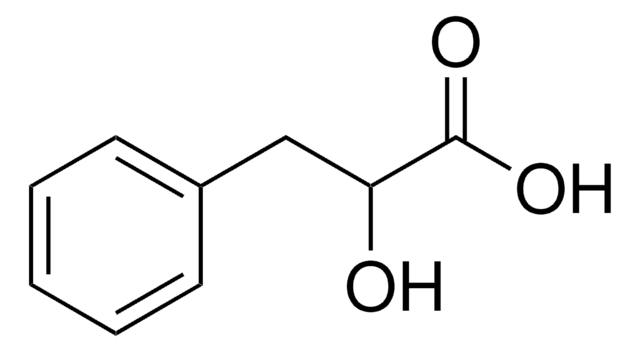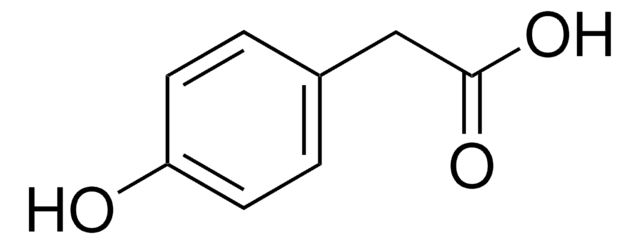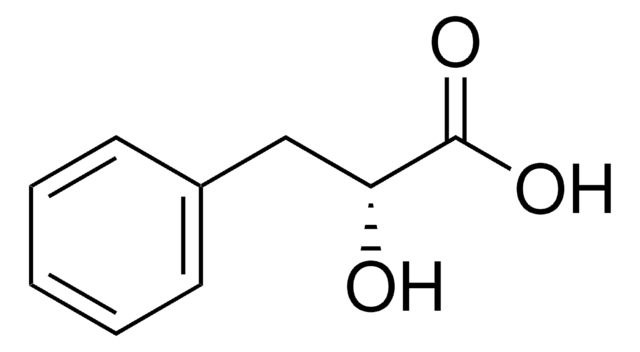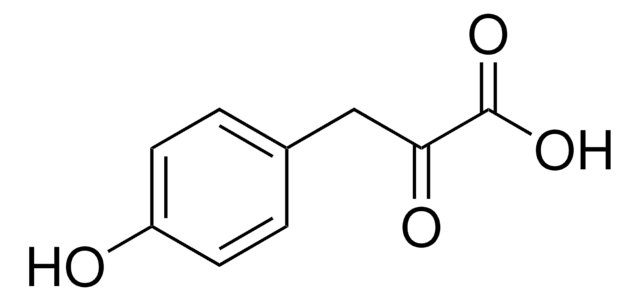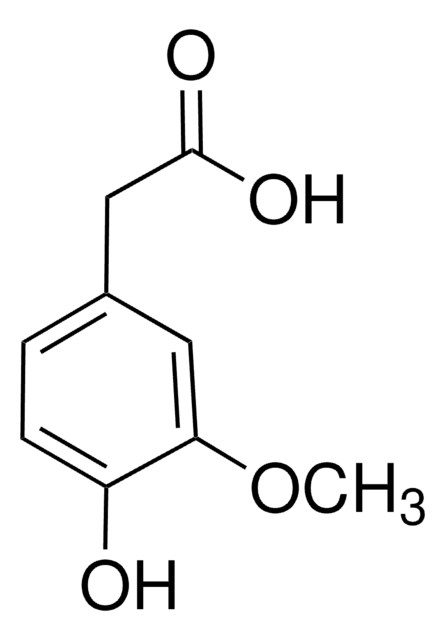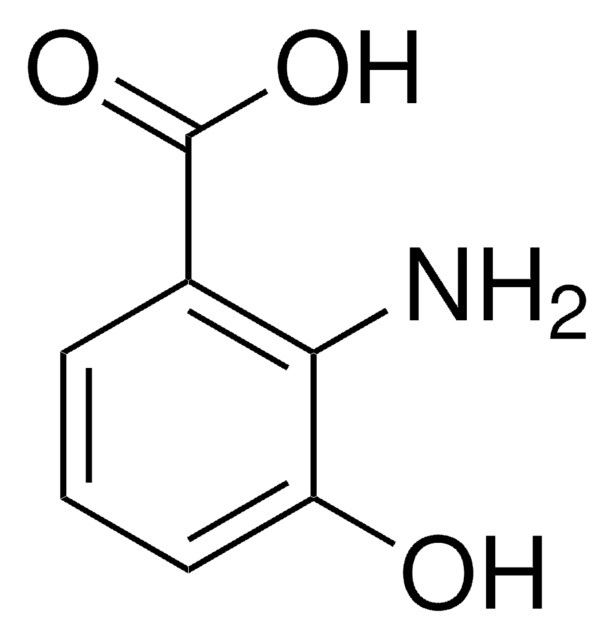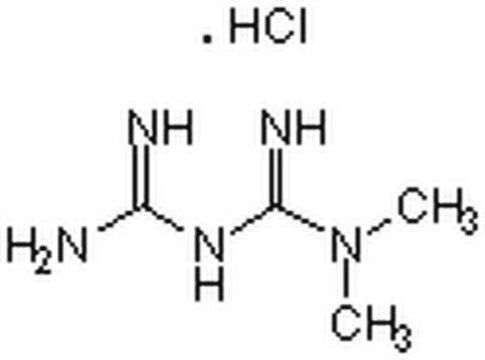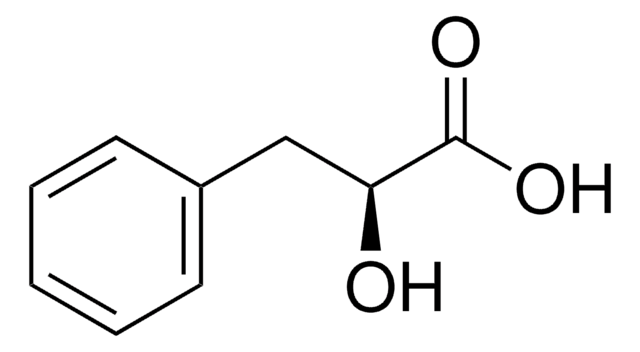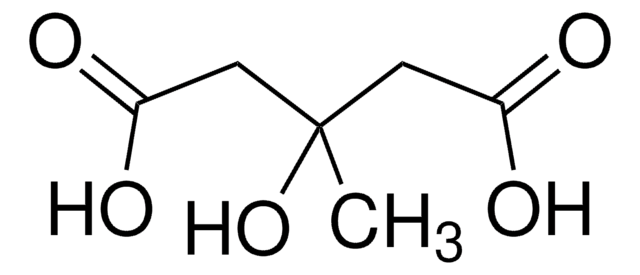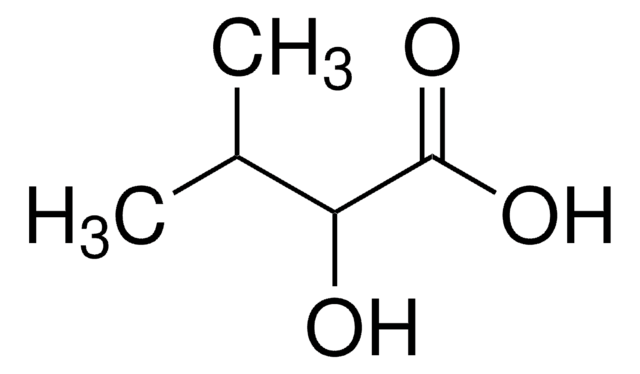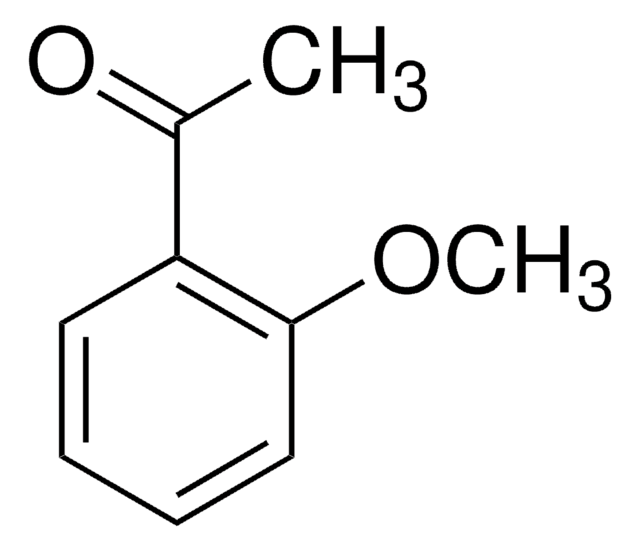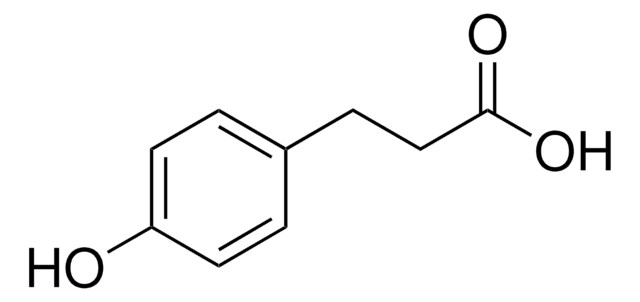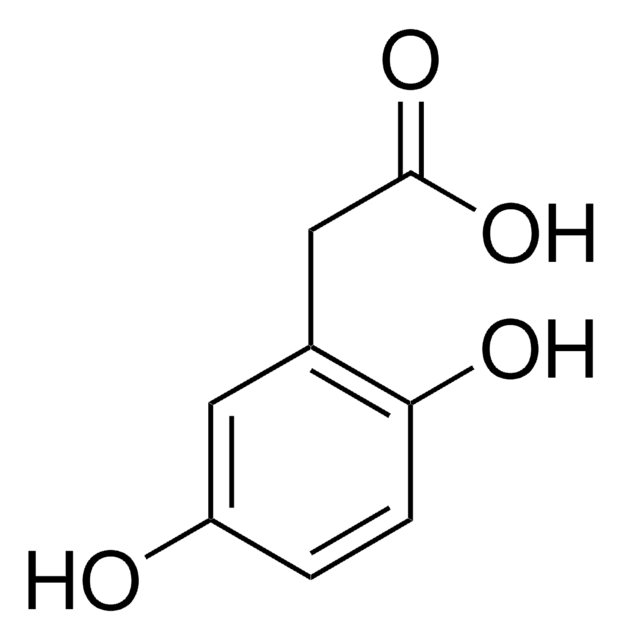H3253
DL-p-Hydroxyphenyllactic acid
≥97% (HPLC)
Synonym(s):
3-(4-Hydroxyphenyl)-2-hydroxypropanoic acid
Sign Into View Organizational & Contract Pricing
All Photos(4)
About This Item
Empirical Formula (Hill Notation):
C9H10O4
CAS Number:
Molecular Weight:
182.17
MDL number:
UNSPSC Code:
12352100
PubChem Substance ID:
NACRES:
NA.22
Assay:
≥97% (HPLC)
Recommended Products
Quality Level
Assay
≥97% (HPLC)
SMILES string
OC(Cc1ccc(O)cc1)C(O)=O
InChI
1S/C9H10O4/c10-7-3-1-6(2-4-7)5-8(11)9(12)13/h1-4,8,10-11H,5H2,(H,12,13)
InChI key
JVGVDSSUAVXRDY-UHFFFAOYSA-N
Looking for similar products? Visit Product Comparison Guide
Application
DL-p-Hydroxyphenyllactic acid is a precursor in the synthesis of rosmarinic acid that can be used for pharmaceutical and nutraceutical applications. It also exhibits antifungal activity.
Storage Class Code
11 - Combustible Solids
WGK
WGK 3
Personal Protective Equipment
dust mask type N95 (US), Eyeshields, Gloves
Choose from one of the most recent versions:
Certificates of Analysis (COA)
Lot/Batch Number
Don't see the Right Version?
If you require a particular version, you can look up a specific certificate by the Lot or Batch number.
Already Own This Product?
Find documentation for the products that you have recently purchased in the Document Library.
Customers Also Viewed
David R Gang et al.
Plant physiology, 130(3), 1536-1544 (2002-11-13)
Sweet basil (Ocimum basilicum) peltate glandular trichomes produce a variety of small molecular weight phenylpropanoids, such as eugenol, caffeic acid, and rosmarinic acid, that result from meta hydroxylation reactions. Some basil lines do not synthesize eugenol but instead synthesize chavicol
A M Dallagnol et al.
Journal of applied microbiology, 111(6), 1447-1455 (2011-09-29)
To evaluate the influence of biosynthetic precursors, intermediates and electron acceptors on the production of antifungal compounds [phenyllactic acid (PLA) and hydroxyphenyllactic acid (OH-PLA)] by Lactobacillus plantarum CRL 778, a strain isolated from home-made sourdough. Growth of fermentative activity and
Antifungal Activity of Lactobacillus pentosus LOCK 0979 in the Presence of Polyols and Galactosyl-Polyols.
Lipinska L, et al.
Probiotics and antimicrobial proteins, 6(14), 1-15 (2018)
Emanuel Vamanu et al.
Genes, 10(7) (2019-07-18)
Non-nutritive sweeteners represent an ingredient class that directly affects human health, via the development of inflammatory processes that promote chronic diseases related to microbiota dysbiosis. Several in vitro tests were conducted in the static GIS1 simulator. The aim of the
Synthesis of 2-O-(4-coumaroyl)-3-(4-hydroxyphenyl) lactic acid, an important intermediate of rosmarinic acid biosynthesis.
Matsuno M, et al.
Chemical & Pharmaceutical Bulletin, 49(12), 1644-1646 (2001)
Our team of scientists has experience in all areas of research including Life Science, Material Science, Chemical Synthesis, Chromatography, Analytical and many others.
Contact Technical Service